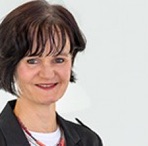Modern Money : The State Can Do It
-
Overview
-
Background information15 Topics
-
1. What is fiat money and why is it so stable?
-
2. What are the advantages of a fiat currency and what are the limits?
-
3. Why do we have two kinds of money and why are private banks allowed to make money?
-
4. How does deposit money emerge through lending? And how does it disappear again?
-
5. Is the bank rich because it can create an unlimited amount of deposit money?
-
6. If there are two separate monetary cycles – how does government spending make its way into the real economy?
-
7. What role do government bonds play in deficit spending?
-
8. What does the government's money creation look like in the simplest case? For example, in Canada?
-
9. From Canada to the Eurozone – is government money creation really that easy?
-
10. How does the vulnerable Eurozone manage the COVID-19 crisis?
-
11. Why are government debts not comparable to other debts?
-
12. Do public debts need to be repaid? Should they be repaid?
-
13. When does inflation rise? And why is deflation a problem?
-
14. What is the neoclassical take on this topic? And why does credit money make such a big difference?
-
15. More about Modern Monetary Theory?
-
1. What is fiat money and why is it so stable?
-
Endnotes
-
Glossary
-
Resources for further study
-
References
-
Interactive learningDeepen your knowledge1 Quiz
-
Training materialExercises for group activities3 Topics
14. What is the neoclassical take on this topic? And why does credit money make such a big difference?
Economic textbooks usually still hold money models based on neoclassical theory. Banks are still described as “financial intermediaries” and the formula of the “money creation multiplier” is still taught – even though central banks now explicitly contradict both concepts and state that they are inconsistent with the practice in the banking system and the accounting rules.
The notion of “banks as financial intermediaries” assumes that banks lend customers´ savings to borrowers. Banks would therefore only channel the money to where it is needed. In this way, money becomes a commodity like any other, which is offered and demanded, and it is from this market process that it derives its price (the interest). This premise allows neoclassical theory to regard money as ‘neutral’, as not causing any effects out of itself, and most of all, having no influence on consumption and unemployment whatsoever. At the same time, this theory stresses the importance of saving. Somebody needs to put money aside first, so that somebody else can invest. This concept of money can be used to justify, for example, austerity policies and the idea that saving could be a ‘cure’ in a financial crisis.
The money creation multiplier, in turn, is a formula designed to calculate how much banks can reproduce money by further lending savings. According to the formula, the ability to multiply savings is determined and limited by the supply of central bank money. This would mean that the supply of deposit money could be controlled by the central bank and would not depend on real economic demand. In fact, however, the central banks cannot control or even regulate the money supply via their central bank money.
On the contrary, increased creation of deposit money by the banks and the implied higher demand for central bank money lets central bank money supply rise (see Bundesbank 2017). Whilst the banks are indeed dependent on the central bank, because they always need its central bank money, the central bank cannot refuse the required central bank money for a bank loan, that has been properly granted. It can only externally define the key interest rate (which therefore is not a market price for money) and thus try to indirectly slow down the growth of deposit money creation.
These questions initially seem abstract and technical. But they have far-reaching implications. If bank money is understood as purely loan money, as this article shows, there is no initial need to save money in order to later invest, since investment can be covered by a loan. This facilitates demand and therefore the savings of third parties, which otherwise would not have been possible. The banks´ credit money therefore is anything but neutral, as in good times it enables momentum and growth, but because its production is dependent on the demand for loans, it is also extremely vulnerable to crisis.
In a crisis, no one wants to take up a loan – and even if they do, the bank will not grant it due to poor repayment forecasts. Instead, more and more loans are being returned, and therefore money supply and demand decline even more. Credit money needs profits, and thus has a pro-cyclical effect. In a crisis it becomes part of the problem and cannot recover by itself. And even a zero percent key interest rate and the flooding of banks with central bank money does not lead to more lending in a proper recession.
Against this backdrop, it is all the more important to focus on government money creation through deficit spending. The MMT analysis proves deficit spending to be much more than just government debt. It is also “the mother of all money creation” the democratic creation of money for politically useful purposes as well as the only countercyclical money creation that can supply people with money when no one else can.






